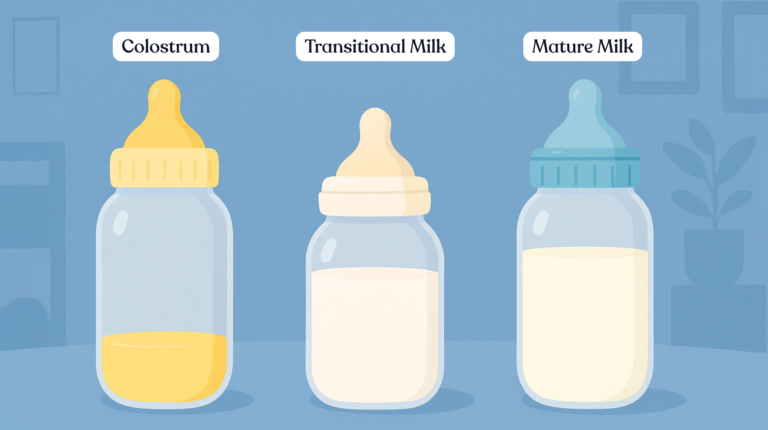Feeling like you’ve just run a marathon, even though you’ve barely moved from the couch? Pregnancy can make you feel out of breath in the most unexpected ways. But don’t worry—this isn’t just you being dramatic or overly tired.
There’s a whole lot going on in your body that’s making you gasp for air. Buckle up as we dive into why this happens and what you can do to catch your breath, both literally and figuratively!
Why do you experience shortness of breath during pregnancy?
Feeling breathless during pregnancy is a common experience, and it primarily boils down to a few key changes happening in your body. As your baby grows, your uterus expands and pushes up against your diaphragm, the muscle that helps you breathe. This pressure makes it harder for your lungs to fully expand, leaving you feeling a bit winded.
“ It can be due to the physiological changes that occur during pregnancy or due to medical complications. Estrogen and progesterone affect it.”
— Dr. Christine Greves an OB-GYN at Orlando Health Women’s Institute Center of Obstetrics and Gynecology in Florida.
Additionally, pregnancy increases your blood volume by up to 50%, which means your heart has to pump harder to circulate this extra blood. This increased demand for oxygen can make you feel short of breath, as your body works to keep up with the added workload. Hormonal changes, particularly the rise in progesterone, also play a role by stimulating your breathing rate to ensure you’re getting enough oxygen.
Lastly, the physical changes in your body, including the growing baby and the expanding rib cage, further contribute to the sensation of breathlessness. If you’re feeling more out of breath than usual, remember that it’s a normal part of the pregnancy process. However, if it feels severe or persistent, it’s a good idea to consult with your healthcare provider to rule out any other concerns.
Which body changes during pregnancy result in shortness of breath?
Pregnancy brings a whirlwind of changes to your body, and some of these transformations can leave you feeling breathless. Understanding the specific bodily adjustments that contribute to this sensation can help you make sense of the experience.
“ As a uterus expands, the amount of space available in the lungs for the exchange of gas to increase, our oxygen decreases. The uterus expands as the pregnancy progresses, and the baby gets larger. Hormonal changes can be responsible for that, but also medical conditions like anemia can affect shortness of breath. The reason for that is because there may be less hemoglobin to carry oxygen. Preeclampsia can cause shortness of breath, also due to fluid in the lungs.”
— Dr. Christine Greves an OB-GYN at Orlando Health Women’s Institute Center of Obstetrics and Gynecology in Florida.
Here’s a closer look at the key changes that lead to shortness of breath during pregnancy:
- Expanding Uterus: As your baby grows, your uterus stretches and rises, pushing up against your diaphragm. This reduces the space available for your lungs to expand fully, making it harder to take deep breaths.
- Increased Blood Volume: Pregnancy leads to a 30-50% increase in blood volume to support both you and your baby. This heightened demand for oxygen causes your heart to pump faster and harder, which can leave you feeling breathless as your lungs work harder to keep up.
- Hormonal Changes: The hormone progesterone rises significantly during pregnancy. Progesterone increases your respiratory rate, causing you to breathe more rapidly to meet the heightened oxygen needs of your body and your baby.
- Pressure from the Growing Baby: As your baby grows, it places additional pressure on your lungs and chest cavity. This physical pressure can limit how much air you can inhale, contributing to the sensation of shortness of breath.
- Changes in Your Rib Cage: Your rib cage expands to accommodate your growing baby and uterus. This expansion can alter the way your ribs and lungs interact, making it feel more challenging to take deep, full breaths.
When does shortness of breath during pregnancy usually start and end?
“ It can start in the first or second trimester and end after pregnancy.”
— Dr. Christine Greves an OB-GYN at Orlando Health Women’s Institute Center of Obstetrics and Gynecology in Florida.
For many, shortness of breath starts creeping in during the second trimester. As your baby begins to grow and make more room for itself, your uterus starts pressing against your diaphragm, which can leave you feeling a bit winded.
By the time you hit the third trimester, that breathlessness can become even more pronounced. Your baby is growing rapidly, taking up more space in your abdomen, and putting more pressure on your lungs.
For many, the most intense breathlessness starts to ease up as you approach the final weeks of pregnancy.
When your baby drops into the lower part of your pelvis in preparation for birth, known as “lightening,” this can relieve some of the pressure on your lungs and diaphragm. It’s like your baby is helping you catch your breath before the big day!
How to alleviate shortness of breath during pregnancy
There are several tricks you can use to catch your breath and stay comfortable.
“ Maintain good posture and slow down if you notice shortness of breath. Also, avoid smoking and be mindful of the positions you sleep in.”
— Dr. Christine Greves an OB-GYN at Orlando Health Women’s Institute Center of Obstetrics and Gynecology in Florida.
Here’s a fun list of tips to help you manage shortness of breath while you navigate your pregnancy journey:
- Use Your Breathing Techniques: Slow, deep breathing can work wonders. Try the 4-7-8 technique: inhale for 4 seconds, hold for 7, and exhale for 8. This can help regulate your breathing and make you feel more in control.
- Sleep on Your Side: Sleeping on your left side can improve blood flow and reduce pressure on your lungs. Grab a comfy pillow and snuggle up—this position not only helps with breathing but also benefits your baby’s circulation.
- Stay Hydrated: Drinking plenty of water helps keep your body functioning smoothly and can ease feelings of breathlessness. Sip water throughout the day to stay refreshed and support your respiratory system.
- Engage in Gentle Exercise: Light exercises, like walking or prenatal yoga, can help improve your lung capacity and overall stamina. Just remember to keep things low-impact and listen to your body—no marathons just yet!
- Wear Comfortable Clothing: Tight or restrictive clothing can add to the feeling of breathlessness. Opt for loose-fitting, breathable fabrics that allow you to move and breathe freely. Your body will appreciate the extra comfort!
When to see a doctor for shortness of breath during pregnancy
Feeling out of breath now and then is pretty normal during pregnancy, but there are times when you should definitely give your doctor a call. If your breathlessness seems to come with some extra drama or persists in an alarming way, it might be time for a check-up.
“ Inform your doctor, if you are still experiencing shortness of breath, despite trying all of these remedies or if you notice things becoming worse.”
— Dr. Christine Greves an OB-GYN at Orlando Health Women’s Institute Center of Obstetrics and Gynecology in Florida.
1. Persistent or Severe Breathlessness: If you’re struggling to catch your breath even when you’re resting, or if the shortness of breath feels unusually intense, it’s worth mentioning to your healthcare provider.
2. Accompanied by Other Symptoms: If your breathlessness comes with additional symptoms like chest pain, dizziness, or swelling in your legs or hands, don’t wait to seek medical advice.
3. Difficulty Breathing When Lying Down: If you find that you’re having trouble breathing when you lie flat, this could be a sign of a condition called supine hypotensive syndrome.
4. Sudden Onset or Rapid Changes: If you experience a sudden onset of breathlessness or if your symptoms change quickly, it’s best to consult your healthcare provider.
Remember, while some shortness of breath is part of the pregnancy package, your doctor is your best ally in making sure everything’s running smoothly. And don’t hesitate to reach out if something feels off.
Conclusion
Navigating the breathless moments of pregnancy can feel like a bit of a rollercoaster, but understanding the reasons behind them can help you breathe a little easier. From the expanding uterus to the surge in blood volume, these changes are all part of the incredible journey of bringing new life into the world.
While some shortness of breath is perfectly normal, always trust your instincts and seek medical advice if anything feels unusual or concerning. Here’s to a smooth and healthy pregnancy, where every breath you take is a step closer to meeting your little one!


